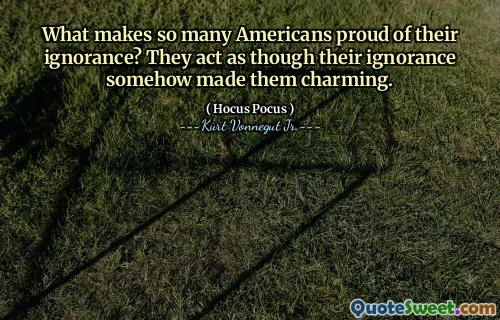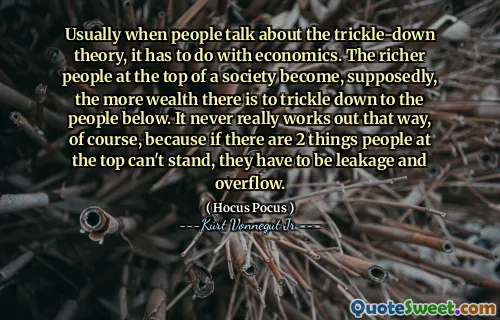
Most of the company's employees were content to do what they were told and incurious as to how it was, exactly, that they had worked the miracles that somehow arrived all packaged and labeled and addressed on the loading docks.I am reminded now of dead American soldiers, teenagers mostly, all packaged and labeled and addressed on loading docks in Vietnam. How many people knew or cared how these curious artifacts were actually manufactured?A few.
The passage highlights the indifference of most employees in a company who follow orders without questioning the processes behind their successes. It suggests a disconnect between the workers and the complexities of their achievements, as they simply receive outcomes—miracles—packaged and delivered to them. This complacency raises concerns about awareness and understanding in the workplace, where critical thinking may be lacking.
The author draws a stark parallel to the tragic reality of American soldiers in Vietnam, emphasizing that just like the employees, few people seemed to care or understand the circumstances of these individuals. The soldiers, depicted as mere items packaged and labeled, evoke a sense of loss and tragedy. This comparison starkly critiques societal apathy towards both labor and war, prompting reflection on the human cost behind the facades of productivity and success.









